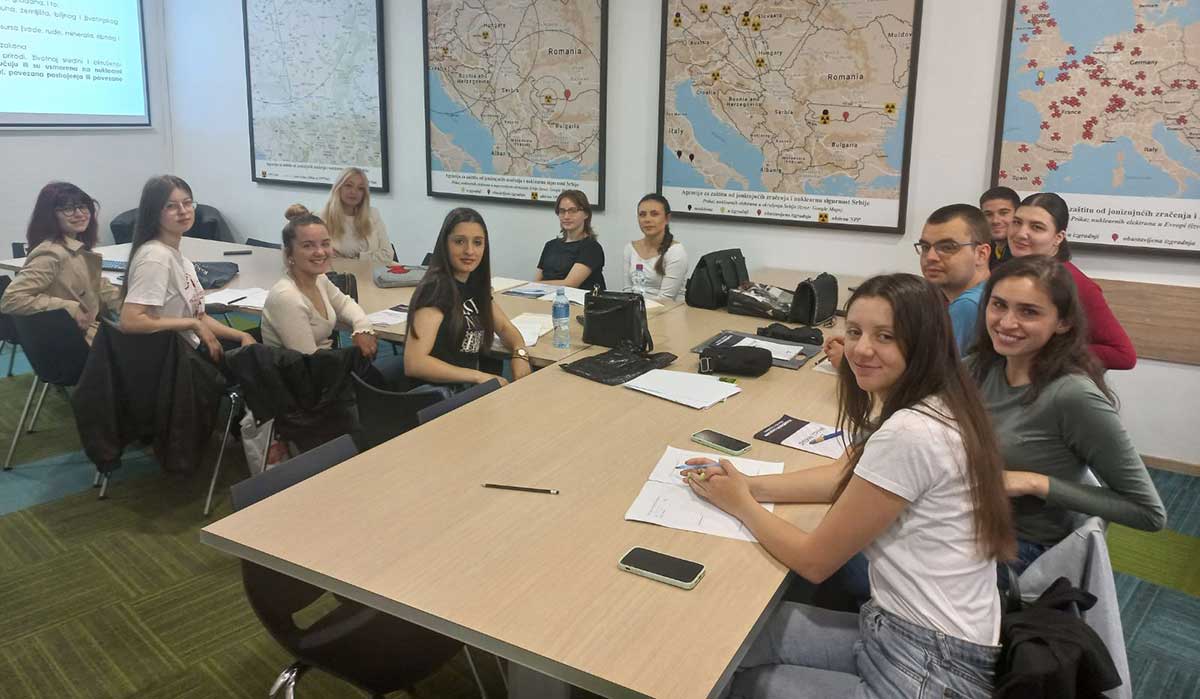The final-year students of the Faculty of Security Studies, University of Belgrade from the Department of Emergency Management and Environmental Security and the Department of Civil Protection and Environmental Protection finished their practical training for the school year of 2023/2024 at Serbian Radiation and Nuclear Safety and Security Directorate
During this two-week practice which ended on Friday 24 May, the students had the opportunity to get acquainted in detail with the work and duties in the purview of the Directorate, and to visit the Vinca Institute of Nuclear Sciences.
The members of the staff at the Directorate presented the students its history since the establishment, the regulations governing nowadays the functioning of the Directorate as the legal successor of Serbian Radiation and Nuclear Safety Agency, as well as with the radiation and nuclear safety and security activities performed by the Directorate.
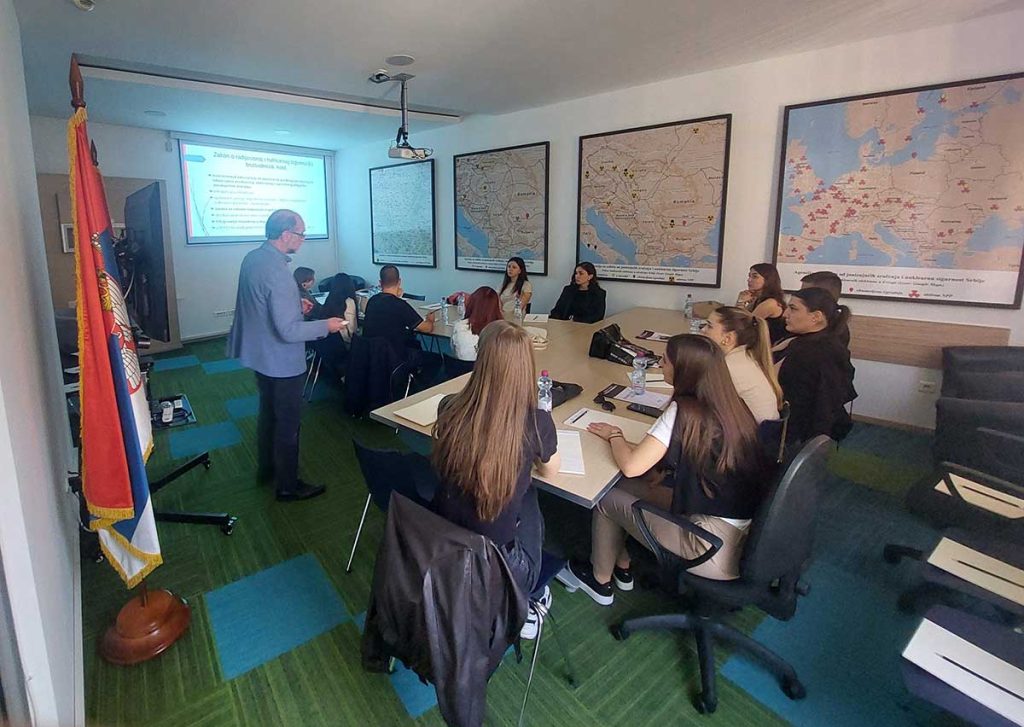
The students first had the opportunity to familiarize themselves with the Unit for International Cooperation and Project Management through the presentation on the topic of Technical Cooperation Programme of Serbia with the International Atomic Energy Agency (IAEA) from Vienna. The focus of the presentation was on the preparation of the national, regional and interregional projects, their overview and realization, as well as on the outcomes of the international cooperation with the IAEA in the previous period.
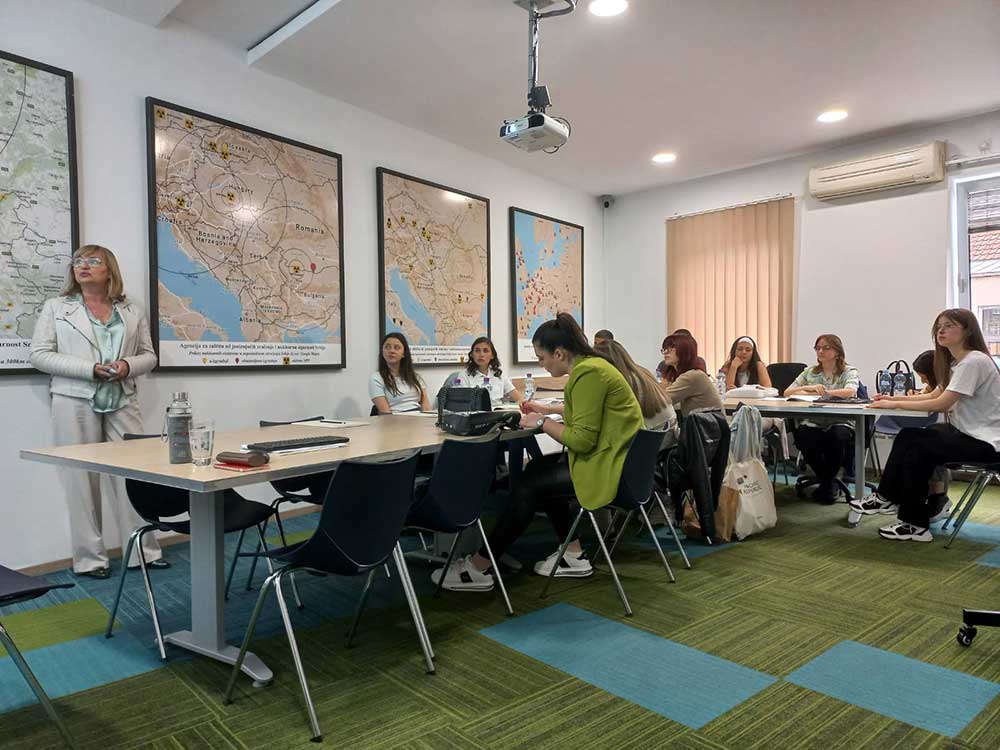
Then, the students were presented with the fundamental principles of radiation and nuclear safety and security, and the legal and regulatory framework of the Republic of Serbia governing the security issues of nuclear and other radioactive material. The students were also given a first-hand insight into the role and the responsibilities of the Directorate in the process of authorizing and implementing security measures and forestalling the proliferation of weapons of mass destruction.
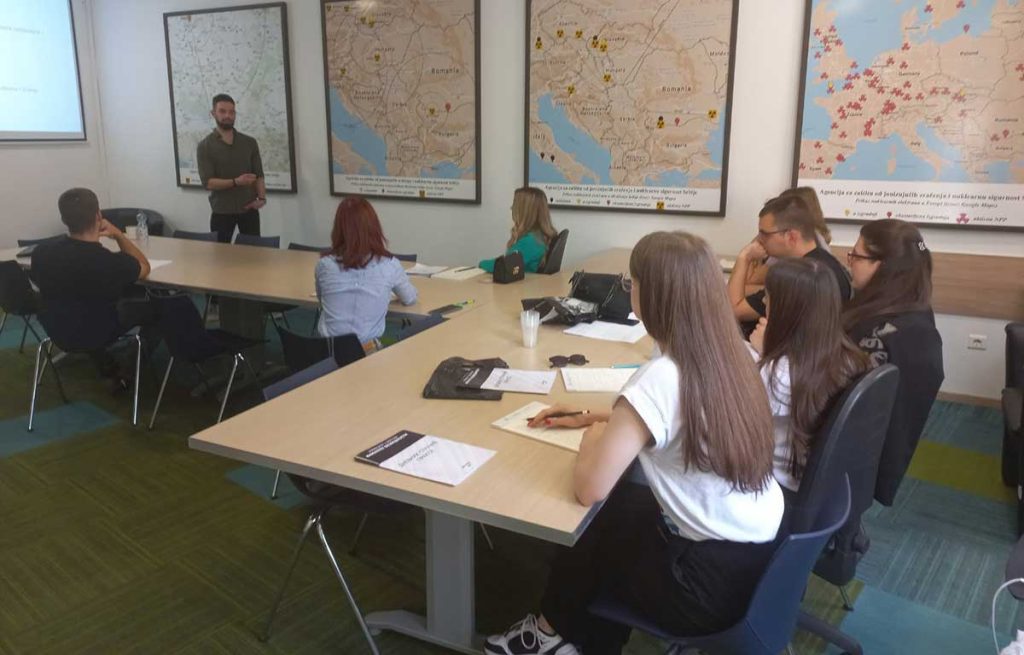
Bearing in mind the fact that criminal offences including or being directed at nuclear and other radioactive material, associated facilities and activities, can have severe consequences on the lives and health of the public, property and the environment, but that they also pose a threat to the international peace and security, the students were also presented with the criminal legal framework of the Republic of Serbia. Such framework, which is aligned with the ratified international agreements, recognizes the above offences, imposes relevant punishments for the offenders and regulates the procedure of providing the international legal assistance in criminal matters. Through the presentation of the regulatory framework and the examples of misuse of radioactive and nuclear materials in practice and their consequences, the students gained insight into their identification, suppression, as well as the necessity of having a coordinated cooperation of all competent authorities, with the aim of preserving internal stability and security as the basic values and interests of the Republic of Serbia.
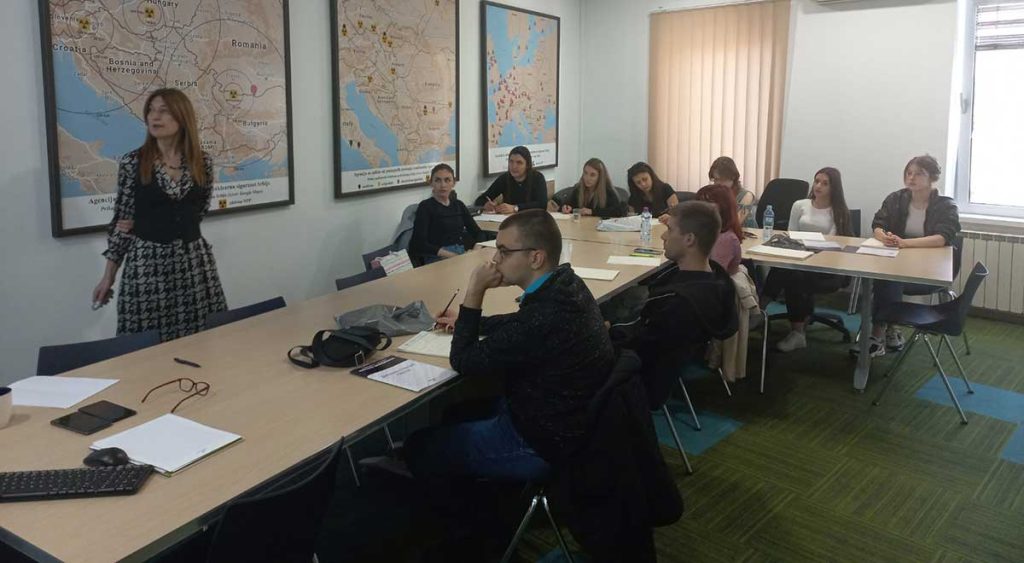
Another topic the students listened to was the aim and the manner of conducting the systematic radioactivity testing and the assessment in the environment in our country, both in normal circumstances and in case of a possible or real nuclear or radiological emergency.
They were presented with the emergency response system, new early warning system, as well as a number of activities and exercises the regulatory body took part in. In particular, this was a unique opportunity for them to see a real-time simulation of how JRODOS as the decision support system for emergency management after nuclear or radiological accidents is used in case of a release of radioactive material.
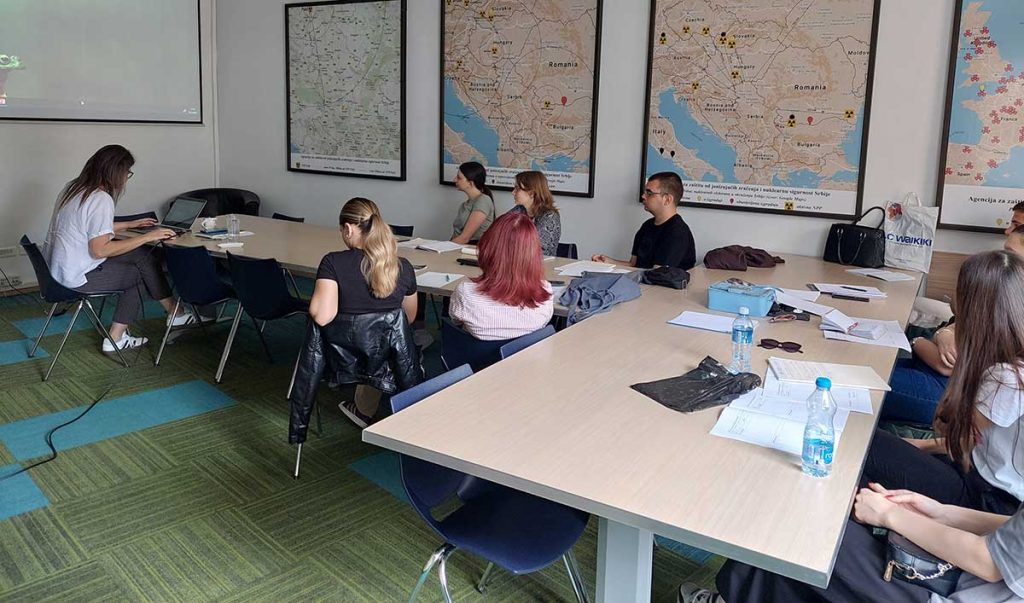
Finally, the students were introduced with the activities during emergency response when they were shown the movie made during the ConvEx-3 exercise in 2017, which served to examine the emergency response system after a simulated nuclear accident in one of the neighbouring countries.
The overall concept of security studies at the Faculty of Security Studies of the University of Belgrade is such that it contributes to the interdisciplinary development of civil society in terms of security, environmental and public protection from natural disasters and chemical accidents, defense of health and society from any modern-time threats to societal and human resources, including their management.
